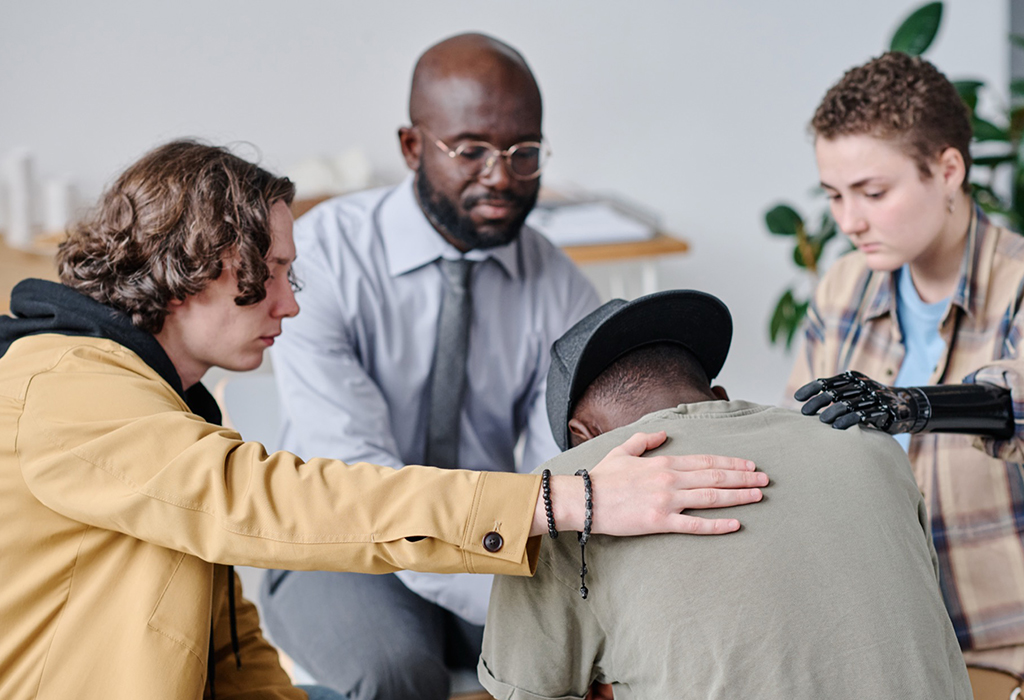Why Choose A Reprieve for Men?
Addiction impacts men differently than women, with unique challenges like societal expectations, emotional suppression, and difficulty forming healthy connections. Our men’s-only campus in Tuscaloosa, AL, offers a safe, supportive space for men to focus on their recovery journey. Residents build lifelong bonds in a brotherhood that fosters accountability, trust, and mutual support.
At A Reprieve for Men, every resident is treated as family. From the moment they arrive, they are welcomed with open arms and a personalized recovery plan tailored to their unique history, struggles, and goals. Our phased approach emphasizes healing in mind, body, and spirit while preparing men for success in life beyond recovery.

A Supportive Brotherhood for Healing, Growth, and Lasting Recovery
Addiction Treatment Program Highlights
A Community-Centered Approach
12-step Immersion
Tailored, Multi-Phase Recovery

Comprehensive Care
- Therapeutic Support: Individual and group therapy sessions, including Cognitive Behavioral Therapy (CBT), Motivational Interviewing (MI), and trauma-informed care.
- Holistic Healing: Spiritual guidance, mindfulness practices, and fitness programs that support physical and emotional well-being.
- Life Skills Development: Training in financial management, job readiness, and goal-setting to prepare for life after recovery.
- Family Therapy: Rebuilding trust and fostering healthy connections with loved ones.
Who We Treat at A Reprieve for Men
Our program is ideal for men who:
- Struggle to achieve sobriety or experience chronic relapse.
- Have difficulty working through the 12 Steps or understanding spiritual principles.
- Need guidance in transitioning back to college or a career.
- Lack of direction in areas like employment, accountability, and goal-setting.
- Have been unsuccessful in traditional rehab or 12-step programs.


Addiction Recovery Through Connection
Spirituality
Addiction often leaves men feeling spiritually lost or disconnected. We help residents discover or rebuild their relationship with a higher power, offering a foundation for guidance and growth throughout recovery.
Community
Our program emphasizes building positive relationships and establishing healthy boundaries. Through shared experiences, residents form a brotherhood that transcends their time at A Reprieve.
Self
Addiction strips away identity and self-worth. Through therapy and spiritual guidance, we help men rediscover their values, rebuild their confidence, and embrace their true selves.
Flexible Levels of Care
We meet each man where he is in his recovery journey, offering:
Medication-Assisted Treatment (MAT)
Partial Hospitalization Program (PHP)
Intensive Outpatient Program (IOP)
Supervised Sober Housing
Our Campus in Tuscaloosa, AL

Take the First Step Toward Recovery
At A Reprieve for Men, recovery is more than overcoming addiction—it’s about rediscovering your purpose, rebuilding your identity, and finding community. Our program combines 12-step immersion, tailored care, and holistic healing to guide men on a transformative journey to lasting sobriety and personal growth.
Contact us today to learn more about our program and begin your path to recovery.
